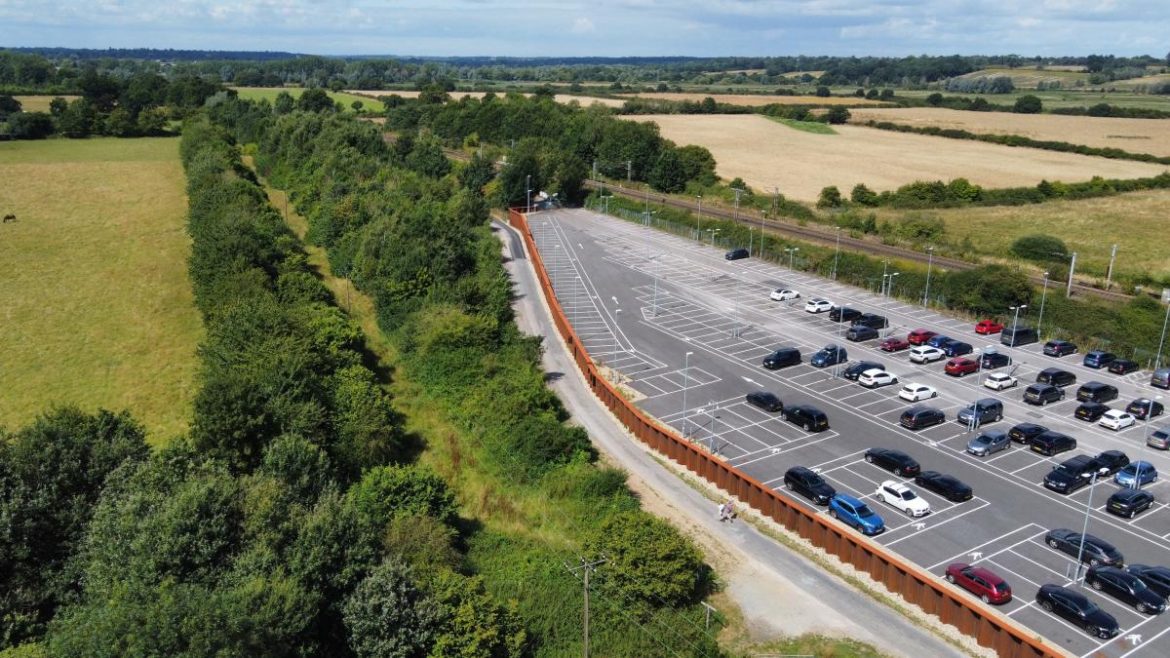Campaigners have celebrated what they describe as an “important victory” in a closely watched case that will determine whether the government will enforce new legislation aimed at protecting national parks and landscapes in England.
Dedham Vale is a designated “national landscape” on the border of Essex and Suffolk, home to increasingly rare species including hazel dormice and hedgehogs. Within it is Manningtree station, where the train operator Greater Anglia built an extension to the car park to cope with increased traffic.
The Dedham Vale Society and Campaign for National Parks said the works, which included an extension to add capacity for another 200 cars, dozens of lighting columns, a 190-metre-long steel wall and bike storage, inhibited public access to St Edmund Way, an ancient pilgrimage path, generated light pollution and threatened habitats.
The group brought a judicial review of the decision to approve the extension without observing a new legal duty to conserve and enhance national parks and national landscapes.
The communities secretary, Angela Rayner, has accepted there was an “error of law” when the planning inspector under the last government approved the development in May 2024.
Read also: Climate adviser: Labour risks losing support for net zero if costs not spread fairly
The campaigners say the case sets a critical precedent for all of England’s 10 national parks and 34 national landscapes, previously known as areas of outstanding natural beauty.
It meant government departments and public bodies would need to apply the legal duty to “seek to further” the purposes of protected landscapes – which included conserving and enhancing them – when making decisions that affected those areas, they said.
The government plans to reform environmental regulations, which ministers say are holding up the building of homes and infrastructure needed to drive growth, and curb the “excessive use” of judicial reviews that delay projects.
The campaign group claims that Greater Anglia should not have gone ahead with the works without obtaining planning permission. Greater Anglia previously told the BBC that it had been allowed “to rely on permitted development rights”.
The local council issued an enforcement notice over the works amid concerns over its visual impact on the landscape, but the planning inspector concluded in May 2024 that the scheme was unlikely to have significant effects on the environment and it was within permitted development rules.
Story was adapted from the Guardian.
